We often use the attribute ‘private’ to describe something premium or even elite. Private school, private service – to give you some hints. In the world of proxies, this adjective refers more to the technical essence of the proxies it describes.
Private proxies refer to the IPs where you, as a user, get to own them exclusively. You will not share them with other users of the same pool of proxies. In this article, we will talk about providers of such proxies and find out what such proxies hold for you and your online projects.
What Is a Private Proxy?
By definition, a private proxy is a server with an IP address assigned to your account only. Some providers refer to such IPs as dedicated proxies. As a rule, these are datacenter proxies, since a residential IP is borrowed from an individual’s device and cannot be assigned only to one proxy user.
Are There Any Private Residential Proxies?
Absolutely. These proxies are called ISP proxies or static residential proxies. Some proxy sellers register DC (datacenter) proxies from residential Internet Service Providers, which makes them identifiable just like real Internet users, just like regular residential proxies.
Why a Free Private Proxy Is Risky
It may sound banal, but a free private proxy is exactly the case when you become a product while using it. And the risks here are very obvious: leaking your private information to a third party or infecting your system through some malicious ads on the free proxy provider’s websites.
Another very plausible situation is to end up with a free public proxy that will not be at all “private”. The chances that it will not be a shared IP are close to zero.
Criteria for Choosing the Best Private Proxy Provider
The best way to choose your provider and find the best places to buy would be by analyzing the experiences of other users, who already bought similar proxies for similar tasks. For that, you can research the performance standings and reviews of such providers on sites like Trustpilot and directly from the provider. It may sound obvious, but the information on a provider’s website should contain a thorough description of your use case scenario and the support team should be able to answer any of your questions related to using proxies.
Yes, top proxy providers often rely more on their self-service systems, and only large enterprise customers may get personalized care. With medium range providers you can expect a more personalized approach, with account managers carefully studying your case to offer a better proxy solution, taking into account your needs, current budget, and other mission-related items.
The Best Private Proxy Services of 2023
And now, get ready for our selection of the best private proxy server providers in 2023. We have selected some of the most topical names in the industry that have demonstrated outstanding performance of their respective private servers and earned the trust of proxy users worldwide. There are some names that got left out from the list (like SOAX, IPRoyal, Netnut, and Proxyempire) but I think that they are also worth mentioning here.
1. PrivateProxy
PrivateProxy started as a provider of premium private proxies over a decade ago. So far, the company has expanded its offerings to cover all proxy-related services. You can find IPs for any of the most demanded use cases in the industry. The company is famous for its industrial standards in tech support, with a team of account managers ready to advise you on the best residential proxies and other options for your personal or business needs round-the-clock.
All of the currently promoted proxies by the provider undergo hand-testing before they are given to the end users for deployment. When you place your order, you automatically get a proxy dashboard that will feature a convenient interface for monitoring and launching your IPs. From here, you will be able to adjust the rotational parameters of the private datatcenter rotating proxies and see the bandwidth consumption.
The best thing about PrivateProxy is that your account manager will always be one click away in order to swap or enhance your pool of IPs if you need to expand your scraping operation. The prices for ISP (private) proxies start at $5 per month for 1 static residential IP (10 IPs will be served to you for $50 a month).
Conclusion: A great choice for SMEs, large corporate and individual private proxy users who value individual approach to proxying.
2. Bright Data
Bright Data (formerly known as Luminati) is one of the largest private proxy giants that features over 700,000 IPs that will be available to you as servers or via the company’s proprietary APIs (or other well-documented SaaS solutions). Your proxy performance is guaranteed through the automatic IP swapping during scraping; this is done to ensure 100% uptime of your connection.
The user’s profile features a proxy manager for setting up your rotation and proxy management parameters. The ISP proxies featured by Bright Data demonstrate impressive speed for fast and reliable scraping.
You have a flexible pricing scheme with Bright Data starting at $10.05 per GB of data. On the downside, all sorts of useful features like city targeting, extra domains, and unlimited traffic options will not be catered to you free of charge.
Conclusion: One of the best options for large corporate users with a need for extra large pools of proxies.
3. Oxylabs
Oxylabs is the absolute leader in the World of ISP proxies from the perspective of its network size. It has over 2 million ISP IPs in its pools that means more possibilities for IP rotations for Oxylabs’ users. Surprisingly, the provider does not feature self-service profiles, with ISP proxies made available to you by the account managers. Another great thing is that you can get your hands on proxy-powered APIs and scraping tools that you can use after being properly trained by the scraping experts.
As for the pricing, it may not be for a company with limited proxy budget. The plans start from 100 and more IPs (for $1.8 per IP) and it clearly shows that Oxylabs is more interested in large corporate clients with huge appetites for scraping.
Conclusion: The leader in the ISP network size with pricing plans targeting corporate clients.
4. Rayobyte
Rayobyte is a great example of a middle-range proxy provider with robust in-house infrastructure and attentive tech support. The provider operates a modest network of ISP IPs that it handpicks for its customers. And if a problem occurs, the IPs get swapped until you are happy with their performance. Most of the proxy-related functions can be controlled and monitored from within the provider’s dashboard, and the tech support is also available 24/7.
As for the company’s pricing policy, here you have less flexibility than with other providers; the cost per IP will remain the same until you go beyond roughly a thousand IPs (around $2.5 per ISP proxy). A two-day trial period is available from the provider, which is a good thing to have with not so cheap proxies.
Conclusion: A wise choice for companies of all sizes looking for IPS proxies from some select locations.
5. Smartproxy
Smartproxy is the place to go when it comes to sourcing US-based ISP proxies. But only if you are not afraid of a 100% self-service environment. You will start by registering here and selecting your proxy plan for as many IPs as you need. The provider features plenty of proxy management tools to choose from, and all of its plans have unlimited bandwidth and thread options.
As far as payment plan, you can start off with a few IPs (at around $2.50 per IP) and grow to a pool that would match your needs. Both HTTPS and SOCKS5 proxies are supported by Smartproxy, with rather high average download speeds. A free trial is also available with a couple of weeks of testing time.
Conclusion: One of the best private proxy providers of US-based proxies with a top-notch self-service website.
6. Webshare
Webshare is a relatively new player that targets affordability and an overall audience of newcomers to a proxy market. In the past several years, Webshare has launched a new lineup of residential proxies with improved performance and other parameters. Sadly, you won’t be able to test servers before buying since there are no options for a free trial.
When it comes to network size and pool filling, Webshare offers an overall solid number. You have the option to choose a server in more than 30 of the most popular countries around the world. As said before, Webshare is targeting newcomers, so you can expect a simple-to-use server, primarily with self-service on most steps.
On the order page, you can customize server parameters like the number of IPs, location, and needed bandwidth. The IP address swap process here is automated, so you do not need to contact support if your server fails. You can just automatically get a new one on the go.
With all of this, Webshare can offer cheap and well-performing proxies that will suit newbies at the proxy scene perfectly. Affordability allows you to experiment and power different small-scale projects to test all of your online tasks and setup overall before any scaling.
Conclusion: A solid choice for newbies on the proxy scene or users who need to power up small-scale projects.
7. Infatica
Infatica is one of the providers that targets a pretty narrow interlayer of users. Here, you can find only shared datacenters and regular residential proxies. One of the major benefits of Infatica is the extensive documentation and collection of guides that can cover most of your problems and help you figure out all the important parts of setting up your proxy.
Another important point in the orientation of customers here lies in targeting corporate clients. Infatica offers more affordable rates for large-scale projects and big players on the market. This option is especially beneficial when you use shared IPs, which can play a significant role when you are scaling the project. The regular payment policy is based on the subscription plans.
With this, you can be sure that the provider has all the tools and support that corporate and business-related clients might want. However, some of the problems may appear when working with the dashboard. Arguably, charts often fail to represent right traffic use, and overall UI might not be friendly to newcomers to proxy systems.
Conclusion: Corporate oriented provider with a rich number of options for all popular proxy use cases.
8. IPRoyal
IPRoyal is another provider that offers flexible and more affordable prices when it comes to scaling. Overall, the provider stimulates users to power up large projects and fuel existing ones on larger scales. So, at the start, you might start with a rather expensive plan with “pay-as-you-go” options for spending gigabytes of traffic. But with the growth of your project, you can save a good amount by using flexible rates. More expensive plans can also offer you SOCKS5 peer-to-peer proxies or advanced customer support.
The main disadvantage here is the size of the proxy pool compared to the top players on the market. Even so, if you are looking at powering up a really big project, some of the locations may limit your appetite. Overall, users have access to more than 2 million IPs in 150 countries around the world.
Conclusion: Provider with good possibilities for scaling the projects. Perfect for users who work with projects without an even or constant load.
9. NetNut
NetNut is a longtime player in the market, with a base of more than 50 million addresses available worldwide. With this provider, you will be able to target markets in more than 200 countries around the world. Not only this, but you will also have access to targeting cities and states in your chosen countries. All of this is paired with a regular choice between HTTP (or HTTPS) and SOCKS5 proxies.
Additionally, NetNut can serve as a good option in the field of mobile proxies. As of now, you can get access to almost a quarter of a million mobile addresses. This IP covers all popular networks, from 3G to 5G. The same way, you can pair your servers with rotation or static functions to expand possible use cases even more.
Conclusion: Provider with perfect option for geo-targeting even the most exotic markets. Some projects can also benefit from a somewhat large base of mobile IPs.
10. SOAX
SOAX is another well established and popular proxy provider on the market. Here, you can find both regular and premium proxies for any spectrum of tasks.
One of the main things that makes you pay attention to SOAX is location and rotation management. To put it simply, with residential proxies, you can select the needed rotation elements for each IP form dashboard and pair them with the needed region or city.
The main downside of the SOAX experience can be the lack of connection. Compared to other offers on the market, SOAX proxies can be a bit slower, depending on the task. You can choose from a rich number of available plans, up to 300 ports. Some of the offers have a 3-day trial available.
Conclusion: Provider with flexible plans and highly customizable servers all around the world.
Advantages and Disadvantages of Private Proxies
As far as the advantages of private proxies go, we can easily talk about two things that make them a lot more efficient than shared proxies:
- Speed and performance. With a private proxy, your scraping speed is not inhibited by sharing the bandwidth of your connection with anyone.
- Security and no bans. The chances of getting access restricted to websites is minimized with private IPs. Even if you scrape the SERP on Google with such proxies, you will be much better off.
And the main disadvantage of such proxies can be seen as:
- High price. The best datacenter proxies or other proxy solutions can be somewhat expensive for the most demanded locations.
- Limited pool sizes. The numbers of IPs in some areas and networks can be scarce, which may cause some access limitations.
When Should I Use Private Proxies?
The answer to this question is quite clear. You will need a reliable set of best rotating proxies when you get involved in a scraping project or data collection that would require a reliable outcome. You can start with a handful of such IPs and grow your pool as your project develops.
Regardless of your project specifics, you will get a better idea about the size of your private proxy pool by seeking advice from seasoned professionals in this field. We always advise our clients on the optimum number of IPs and types of proxies when they express the desire to take their scraping to a whole new level.
Frequently Asked Questions
Please read our Documentation if you have questions that are not listed below.
-
What are private proxies?
These are your proxies with exclusive IPs that can be used for a variety of highly intensive scraping projects.
-
What are the advantages of using private proxies?
The two main advantages are higher security and speed. You get overall better performance with private proxies over shared IPs.
-
Why choose private proxies over shared ones?
To reduce the risk of being banned on the target websites that you are accessing for data collection.
-
Where can you use private proxies?
All types of web scraping, social media management (managing multiple accounts), online streaming, online gaming, and accessing geo-restricted websites.
Top 5 posts
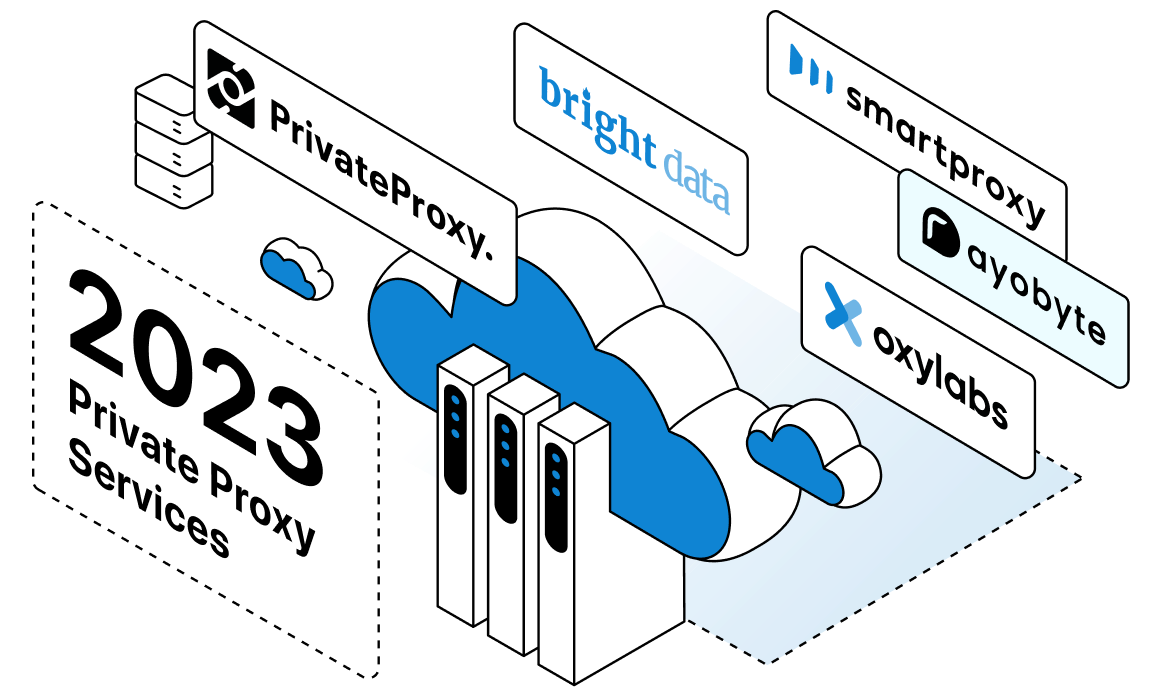

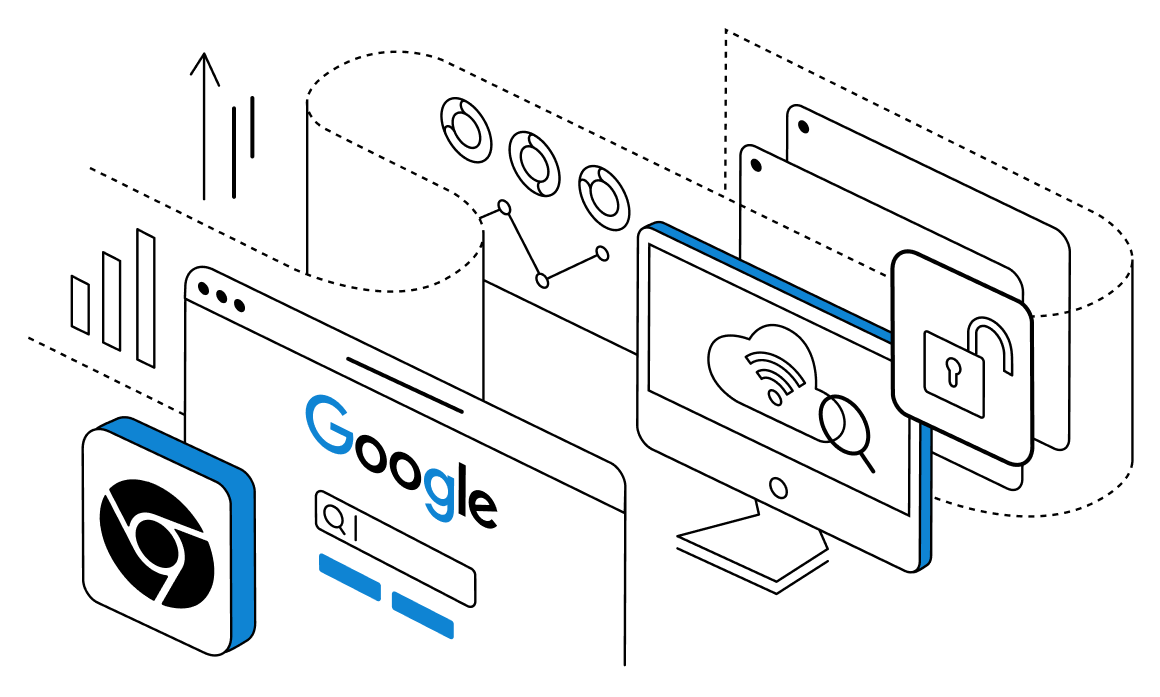

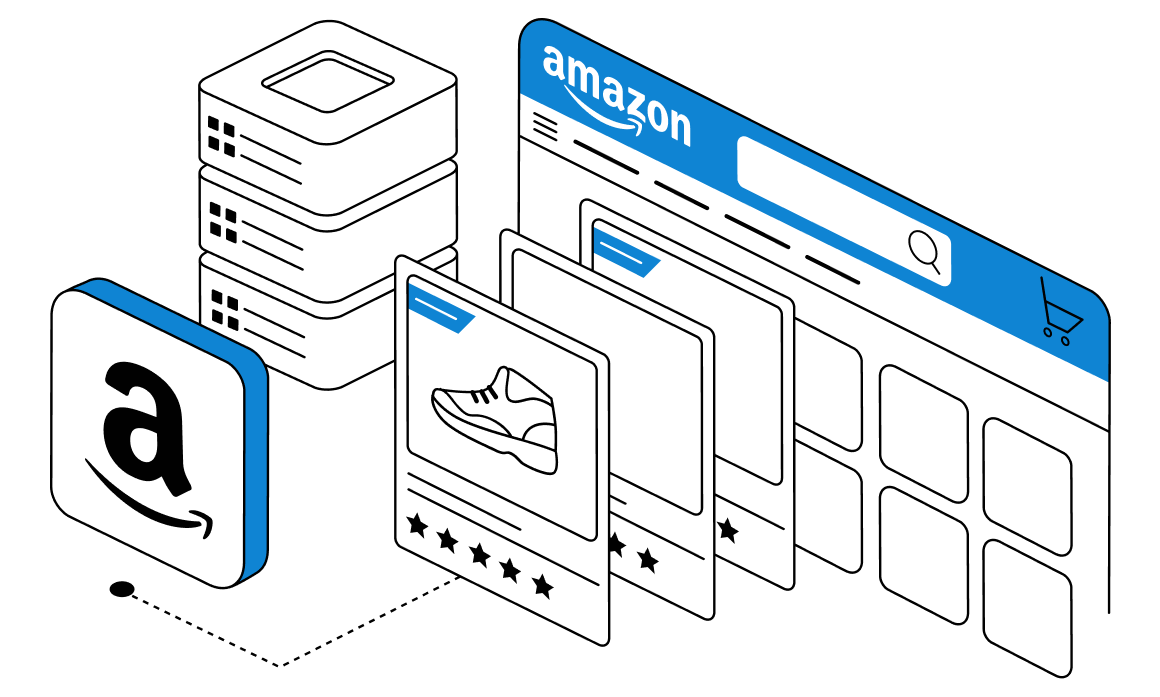

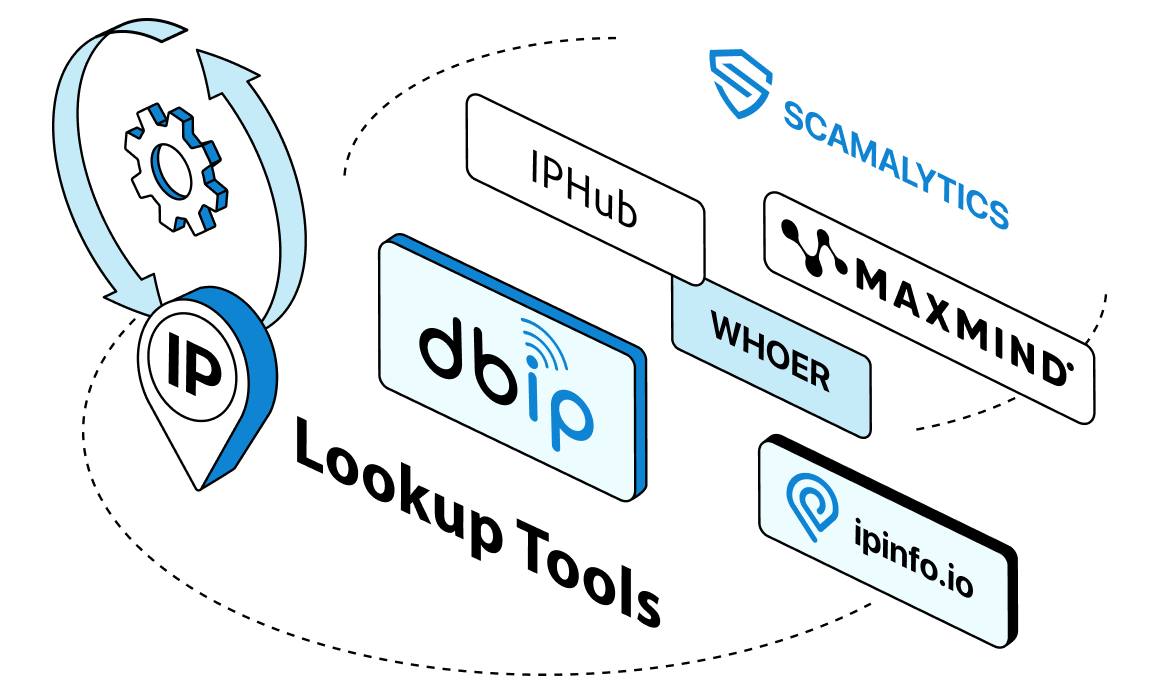
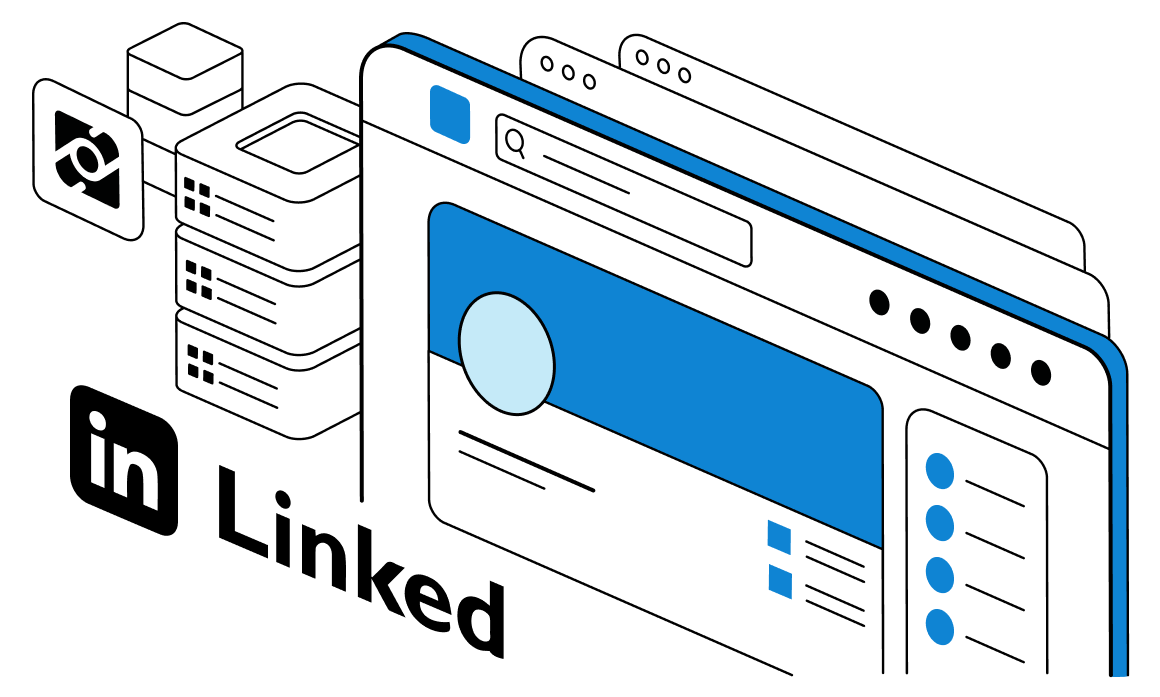
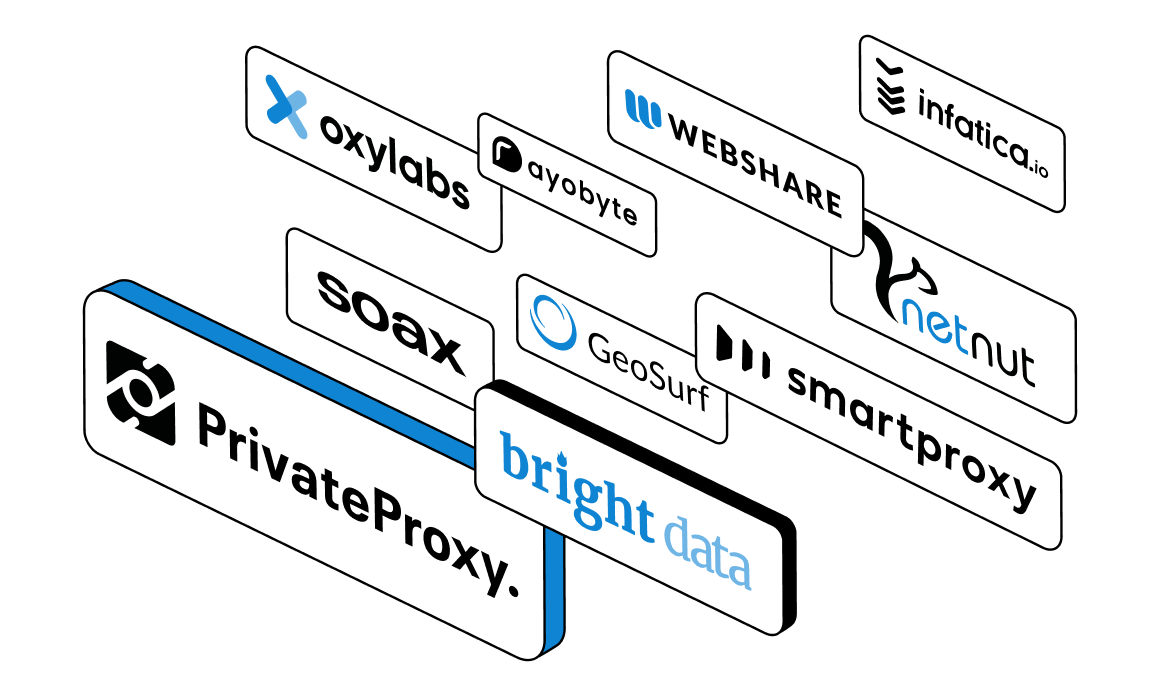
Web scraping nowadays has become an essential tool for lots of different organizations and businesses. Modern competition on the market is built around data harvesting and analysis. Web scraping can also be useful for SEO, HR, and marketing tasks in almost any business.
Web scraping is a complex process during which many factors need to be taken into account. In the following paragraphs, we'll learn what tricks to use and how to manage a proxy to scrape Google.